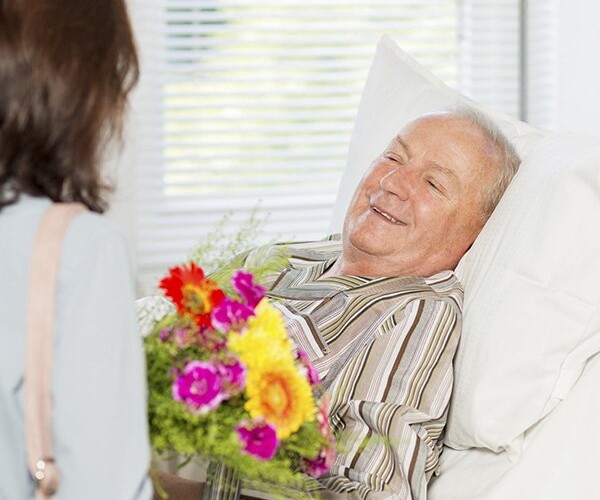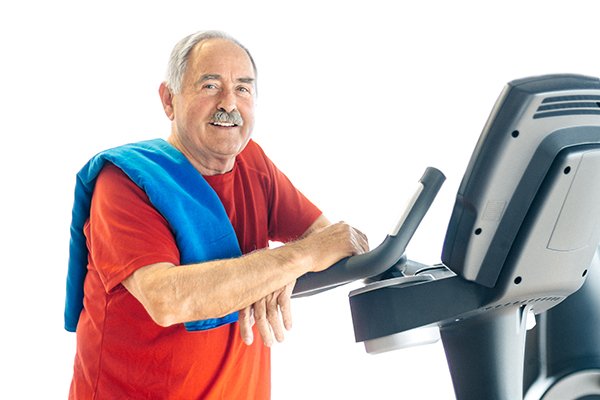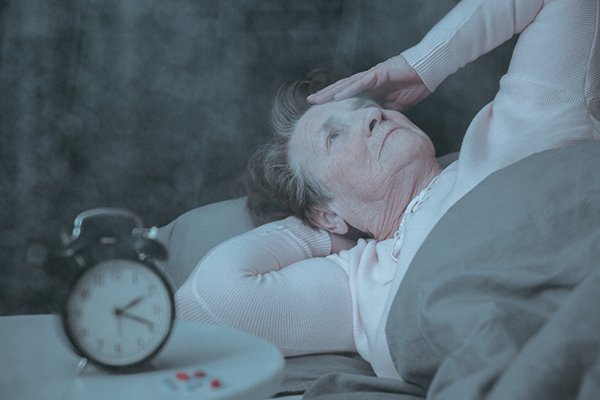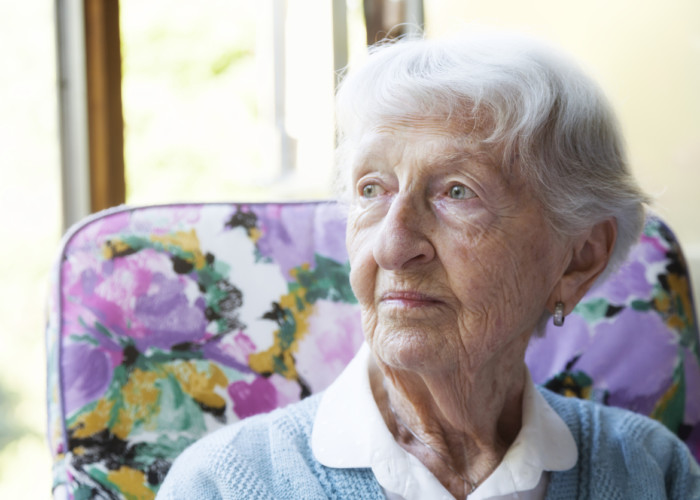senior health
The Impacts of a Stroke on Brain and Functionality
Understanding the impacts of a stroke can help caregivers create the most appropriate plan of care.
A stroke is a difficult experience to encounter, and no two individuals are impacted in the same way. While some stroke survivors will have few, if any, lingering effects post-stroke, for many, a stroke will be a life-altering event that results in weakness, numbness, or paralysis on one or both sides of the body. The impacts of a stroke can be evident in the individual’s coordination and balance, as well as result in changes in behavior and judgment.
Comprehending why a stroke survivor is acting a certain way or experiencing particular symptoms can often help caregivers create the most appropriate plan of care. Below are just a few ways that having a stroke might impact a person’s brain and level of functionality.
A stroke in … Read More »
How to Have a Safe Stroke Recovery
Hired Hands Homecare of Napa can help make sure that your loved one’s home is safe and sound for stroke recovery.
Surviving and going through recovery after a stroke is both an emotionally and physically challenging experience, and the only thing you wish to do is to get back to your regular life. But, given that around 2/3rds of stroke survivors usually have some type of disability, according to the National Stroke Association, in-home safety modifications may be needed to make post-stroke life easier and safer.
The encouraging news is that there are some basic measures that can make the home safer and more accessible for stroke recovery. Below are several post-stroke home alteration guidelines from Hired Hands Homecare:
Fall Prevention:
Approximately 40% of stroke survivors suffer serious falls within a year after their strokes. These suggestions can help protect against trips … Read More »
The 5 Stroke Warning Signs You Need to Know
It’s crucial to be able to discern stroke warning signs.
Stroke, according to the National Stroke Association, is listed as the fifth top cause of death in the U.S., with approximately 800,000 individuals suffering from a stroke each year. This suggests that every 40 seconds a person somewhere in the U.S. has a stroke. And every four minutes someone dies as a result of a stroke.
If you are helping an elder or chronically ailing friend or family member who is at an elevated risk for stroke, it’s crucial to ensure that you are in a position to discern stroke warning signs. The quicker you get professional help, the better the chance that your loved one will live through the stroke. Warning signs of a stroke typically include sudden onset of:
Weakness or numbness in the arm, leg, or face – especially … Read More »
Learn to Recognize the Initial Symptoms of Parkinson’s
Hired Hands Homecare’s Napa senior living experts share information on the initial symptoms of Parkinson’s.
Parkinson’s disease affects one out of 100 people above the age of 60, plus the U.S. sees around 60,000 new cases every year, reports the Michael J. Fox Foundation. Because April is Parkinson’s Awareness Month, the home care experts at Hired Hands Homecare want to help raise understanding of the initial symptoms of Parkinson’s, as finding help early is crucial.
A proper diagnosis for Parkinson’s disease requires a battery of tests to rule out other conditions that often mimic Parkinson’s symptoms. However, early diagnosis and treatment might help patients boost their overall condition and experience a greater total wellbeing over time.
Here are warning signs and initial symptoms of Parkinson’s disease:
Moderate tremors – usually the symptom causing visitors to seek medical assistance.
Difficulty getting out of a … Read More »
Providing Elderly Care in Napa | Caring for a Parent With Parkinson’s
Learn tips on caring for a parent with Parkinson’s disease.
A large number of older adults with Parkinson’s disease receive the largest part of their care at home from loved ones, specifically during the earlier levels of the disease. As the leader in elderly care in Napa and the surrounding area, we at Hired Hands Homecare are aware of the unique concerns experienced by family members who are care providers for a parent with Parkinson’s, and want you to know you’re not alone! We are always available to offer recommendations and to partner with you in making sure your loved one is receiving the highest quality care at all times.
To begin with, it’s very helpful to keep these Parkinson’s-specific tips in mind:
Nutrition: A healthy diet helps lessen cell loss in an individual with Parkinson’s. Getting plenty of antioxidants, like … Read More »
At Home Caregivers in Santa Rosa | The Link Between Exercise and Parkinson’s Disease
Learn the important link between exercise and Parkinson’s disease symptom progression.
The particular results of exercising throughout aging are fantastic; however, for people who have Parkinson’s disease, it could truly be a game-changer in the progression associated with the disease. Several studies are revealing direct links between exercise and Parkinson’s disease, including the largest clinical study up to now, in which patients who exercised at least 2½ hours each week gained a higher total wellbeing compared to those who refrained from physical activity. And that’s only the start.
The onset of Parkinson’s symptoms develops following a loss in the brain cells that make dopamine. Experts think that exercise makes it possible for the brain to revive lost connections, form new ones, and keep maintaining those that continue to be in place. Additional studies show:
Gains were realized in stride length, gait … Read More »
6 Steps to a Good Night’s Sleep for Seniors
For seniors who struggle with sleep problems, these tips can help.
A restful night’s sleep isn’t easy for many seniors – and for those who provide care for them. When the sun goes down, seniors can find it is a challenge to relax and fall asleep, or to remain asleep through the duration of the night. Sleepless nights then lead to sluggish days that can do more than just make someone feel sleepy. In fact, a chronic lack of sleep can impact a person’s overall health, making good sleep on a regular basis vitally important.
Taking steps to proactively prepare for a restful night’s sleep can help older adults and their caregivers get the sleep they need now to prevent health problems in the future. Try taking the steps below to improve sleep patterns:
Get regular exercise: Exercising several hours before … Read More »
The Most Common Senior Sleep Disorders and When to Seek Help
Details on common senior sleep disorders are provided by Hired Hands Homecare here.
Getting consistent, sufficient sleep can be a challenge for many older adults, due to a number of senior sleep disorders. And the effects of these disorders can be troublesome: extreme fatigue, concentration and memory problems, and sleepiness. Ensuring that your senior loved one gets enough rest each night is beneficial not just for the senior, but for you as a family caregiver as well. The following are some of the most common sleep problems for seniors, and the red flags that point to a need for medical intervention.
RLS (Restless Leg Syndrome): Restless leg syndrome is a neurological movement disorder that displays through an overwhelming urge to move the legs during periods of rest and relaxation. Someone with RLS may also experience a creeping, pulling, or tingling feeling in … Read More »
Seasonal Depression in Seniors: What to Look for and How to Help
The change from long summer days to shorter, colder ones can sometimes affect how we feel. And while it’s true that many of us find the holiday season to be a joyful time, the drop in temperatures and reduced daylight can bring on darker feelings as well. These changes can even lead to a type of seasonal depression known as seasonal affective disorder (SAD). During the late fall and winter months, be on the alert for any signs of depression that may be apparent in your senior loved ones. According to the Mayo Clinic, seasonal affective disorder occurs more often in women than it does in men, but men’s symptoms are often more severe.
Rather than dismissing these signs as simply the winter blues, note that SAD can cause older adults to sink into depression, experience a reduced energy level and increased … Read More »
3 Crucial Steps to Ensure Medication Adherence in Seniors
Are your elderly loved ones currently taking prescribed medications? Are you certain they’re taking them exactly as prescribed? Research shows that the typical senior is taking a multitude of prescription meds – as many as 15 – 18 of them each and every day. And, as many as 55% of those prescription medications are not being taken correctly for a variety of reasons, with serious repercussions. Knowing as much as possible about your own prescriptions and those your older loved ones are taking can help eliminate the potential for dangerous medication mishaps and allow for the optimum benefits of the medications.
Below are several tips to help ensure proper medication adherence.
Get the answers you need. Don’t be afraid to ask the health care provider and/or pharmacist any and all questions you may have about the prescription. Ensure you know the following:
The … Read More »

















